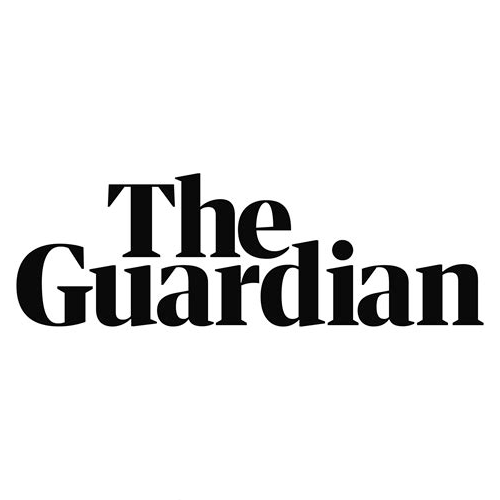
- A British newspaper with a global online presence.
- Known for progressive editorial stance and investigative journalism.
- Covers politics, culture, environment, and world news.
- Operates under the Scott Trust to maintain independence.
CLEARNET LINK
The Guardian: Analysis, Press Freedom, and Access Through Tor
The GuardianThe Guardian, founded in 1821, is one of the world’s leading newspapers, known for its investigative reporting, cultural coverage, and in-depth analysis. To protect press freedom and ensure global access, it launched a Tor mirror of its website, accessible only through the Tor Browser. This version allows readers to bypass censorship, browse anonymously, and safely connect with journalists. By adopting Tor, The Guardian strengthens its role as a defender of free speech in the digital age. More was founded in 1821 in Manchester under the name The Manchester Guardian. Originally a regional newspaper, it gradually evolved into a global media outlet. In 1959, it was renamed The GuardianThe Guardian, founded in 1821, is one of the world’s leading newspapers, known for its investigative reporting, cultural coverage, and in-depth analysis. To protect press freedom and ensure global access, it launched a Tor mirror of its website, accessible only through the Tor Browser. This version allows readers to bypass censorship, browse anonymously, and safely connect with journalists. By adopting Tor, The Guardian strengthens its role as a defender of free speech in the digital age. More, cementing its status first as a national and later as an international publication.
Today, The GuardianThe Guardian, founded in 1821, is one of the world’s leading newspapers, known for its investigative reporting, cultural coverage, and in-depth analysis. To protect press freedom and ensure global access, it launched a Tor mirror of its website, accessible only through the Tor Browser. This version allows readers to bypass censorship, browse anonymously, and safely connect with journalists. By adopting Tor, The Guardian strengthens its role as a defender of free speech in the digital age. More is one of the most widely read online news organizations in the world, with offices in London, New York, and Sydney. The paper has received numerous prestigious awards for its investigative journalism, including groundbreaking reports on government surveillance, corporate misconduct, and human rights issues.
A Unique Ownership Structure
What makes The GuardianThe Guardian, founded in 1821, is one of the world’s leading newspapers, known for its investigative reporting, cultural coverage, and in-depth analysis. To protect press freedom and ensure global access, it launched a Tor mirror of its website, accessible only through the Tor Browser. This version allows readers to bypass censorship, browse anonymously, and safely connect with journalists. By adopting Tor, The Guardian strengthens its role as a defender of free speech in the digital age. More stand out is its ownership model: it is controlled by the Scott Trust, a foundation created specifically to safeguard editorial independence. This means that neither private investors nor shareholders can dictate editorial policy.
This structure allows the paper to stay true to its core values:
- protecting freedom of speech,
- prioritizing depth and accuracy,
- putting public interest above commercial interests.
Content and Analysis
The GuardianThe Guardian, founded in 1821, is one of the world’s leading newspapers, known for its investigative reporting, cultural coverage, and in-depth analysis. To protect press freedom and ensure global access, it launched a Tor mirror of its website, accessible only through the Tor Browser. This version allows readers to bypass censorship, browse anonymously, and safely connect with journalists. By adopting Tor, The Guardian strengthens its role as a defender of free speech in the digital age. More covers a wide range of topics, including:
- World news with a focus on politics, economics, and social issues,
- Investigative reporting, such as its historic coverage of Edward Snowden’s disclosures,
- Culture — reviews of film, literature, and the arts,
- Science and the environment, with particular emphasis on climate change,
- Opinion pieces and expert commentary that shape public debate.
- Its analysis is valued for presenting complex global processes with clarity and depth.
Why The Guardian Uses a Tor Mirror
1. Fighting Censorship
In certain countries, access to independent journalism is restricted. The onion mirror lets readers bypass such blocks and stay informed.
2. Protecting Sources
The GuardianThe Guardian, founded in 1821, is one of the world’s leading newspapers, known for its investigative reporting, cultural coverage, and in-depth analysis. To protect press freedom and ensure global access, it launched a Tor mirror of its website, accessible only through the Tor Browser. This version allows readers to bypass censorship, browse anonymously, and safely connect with journalists. By adopting Tor, The Guardian strengthens its role as a defender of free speech in the digital age. More is renowned for working with whistleblowers and anonymous sources. Its publication of Snowden’s documents was one of the most significant investigations of the 21st century. A Tor mirror helps create safer channels for such sources.
3. Reader Privacy
The onion site allows readers to browse anonymously, which is especially important in regions with high surveillance or for users who want to avoid digital tracking.
4. Technological Leadership
By adopting Tor, The GuardianThe Guardian, founded in 1821, is one of the world’s leading newspapers, known for its investigative reporting, cultural coverage, and in-depth analysis. To protect press freedom and ensure global access, it launched a Tor mirror of its website, accessible only through the Tor Browser. This version allows readers to bypass censorship, browse anonymously, and safely connect with journalists. By adopting Tor, The Guardian strengthens its role as a defender of free speech in the digital age. More demonstrates its commitment to innovation and to defending press freedom in the digital age.


